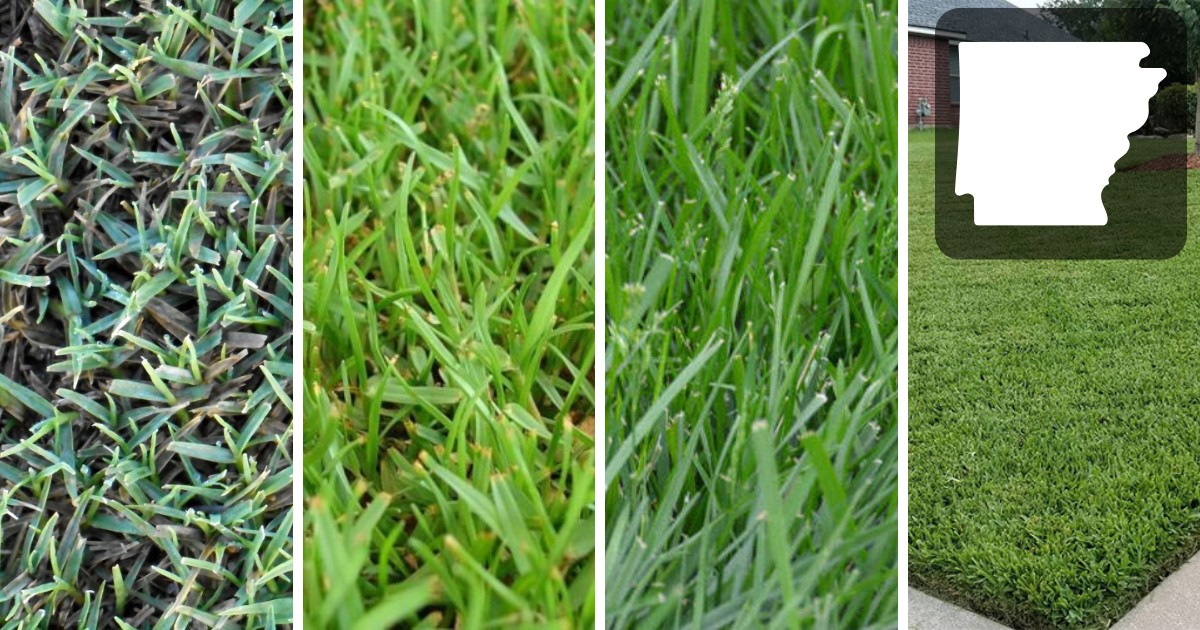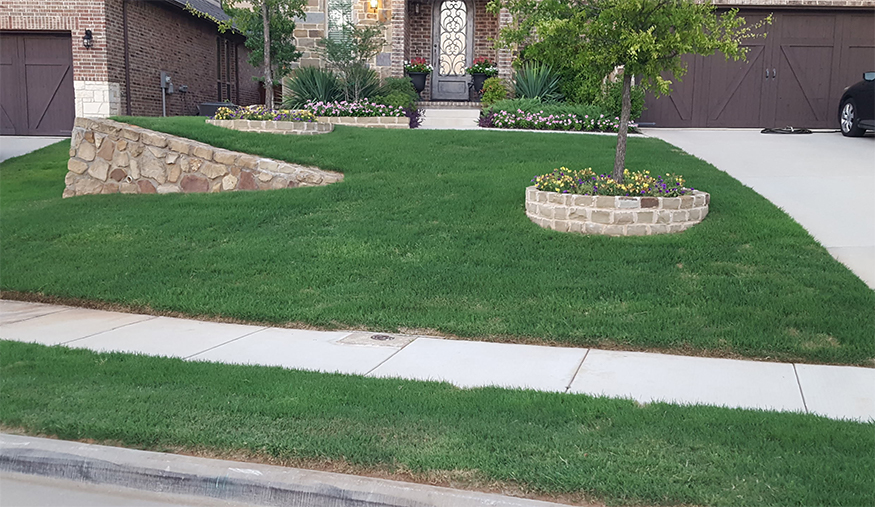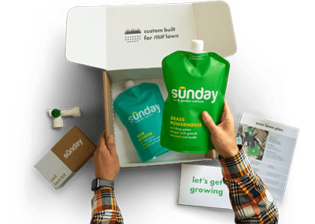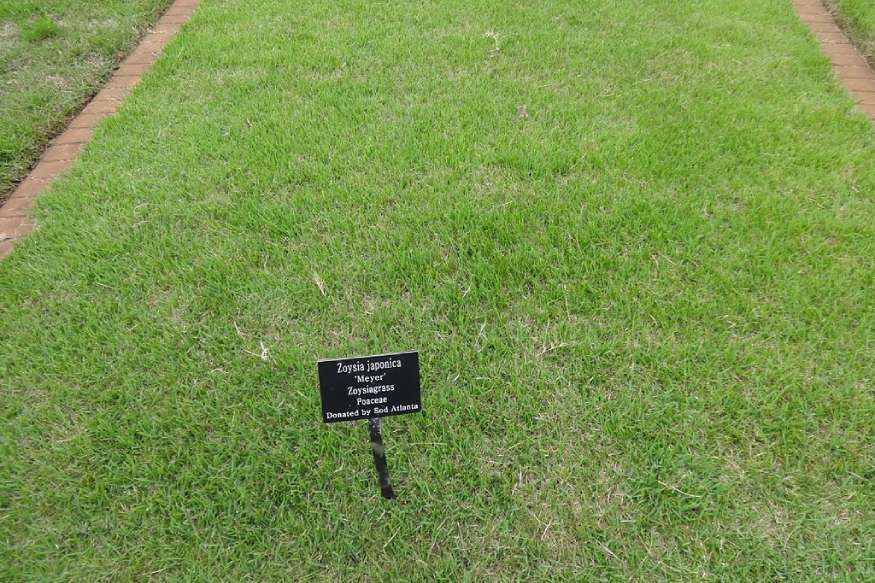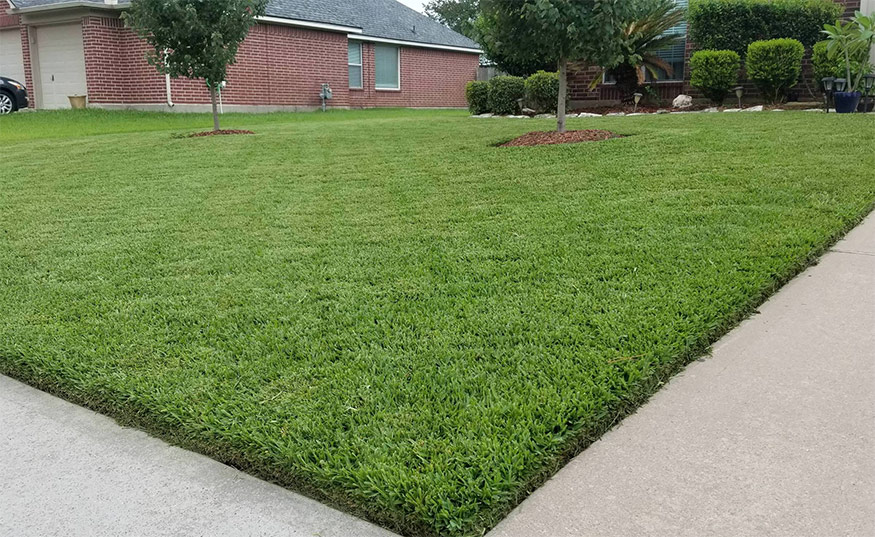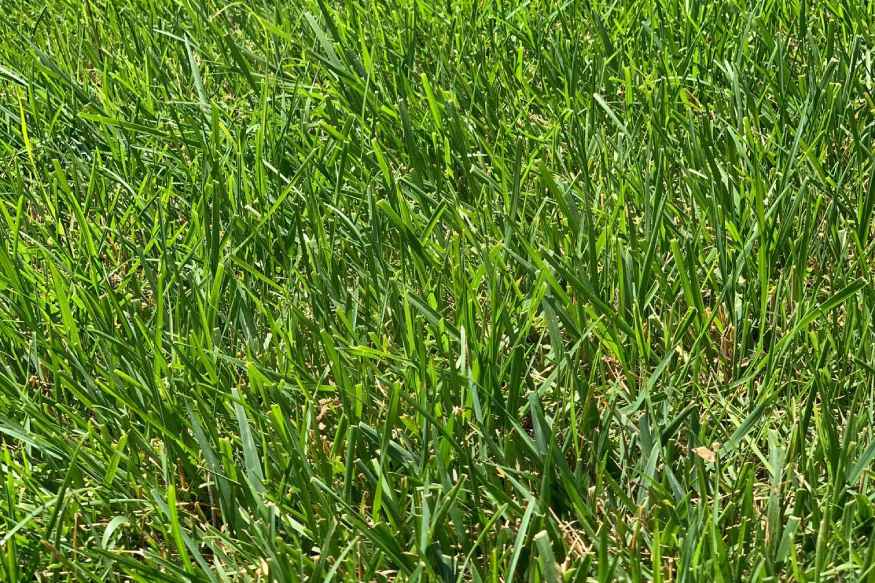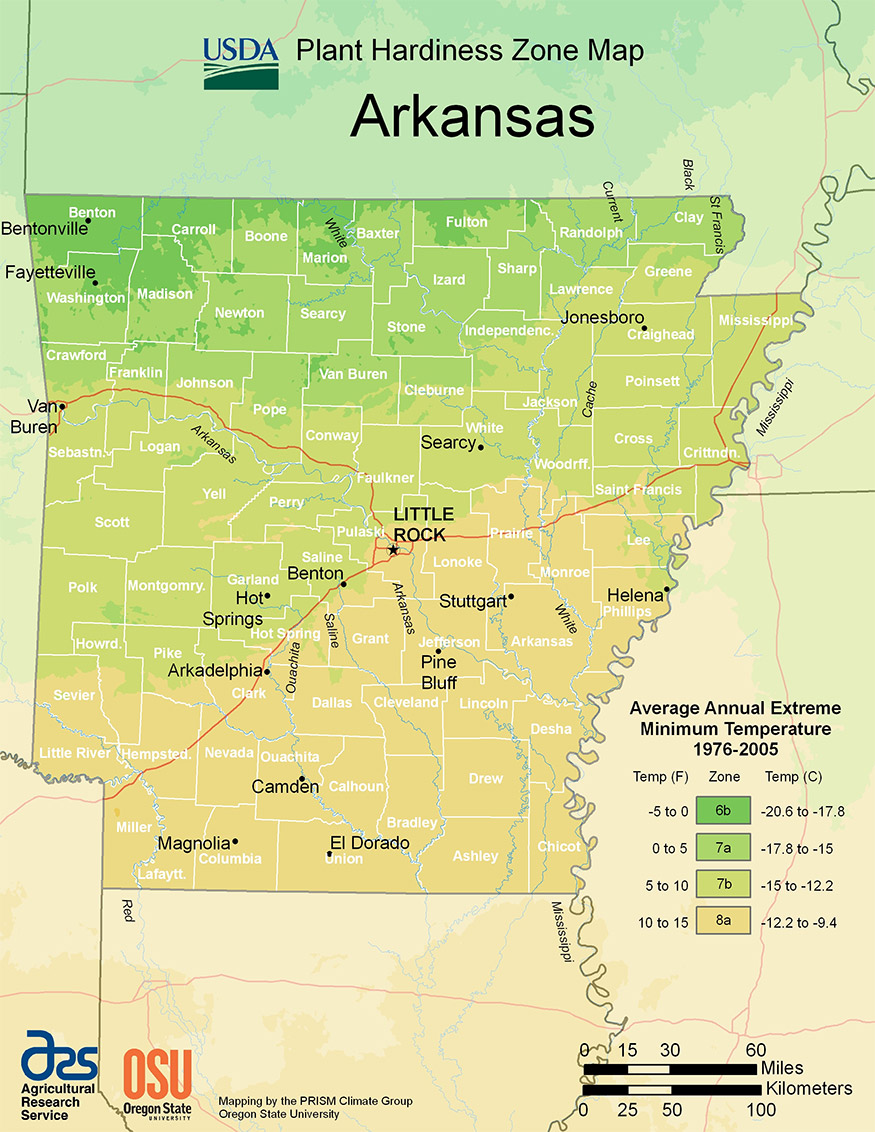Arkansas’ moderate climate and abundant rainfall make it an ideal location for growing grass. While bermudagrass is a popular choice for homeowners and landscapers alike, it’s not the only option available.
In this article, we’ll explore some of the best grass seed options for Arkansas, taking into account the unique challenges of the region such as extreme heat, drought, and soil erosion. From fescue to zoysia, we’ve got you covered.
So, if you’re ready to transform your lawn into a verdant oasis, read on to discover the best grass seed for Arkansas.
Bermudagrass
| Also Known As | Bermuda grass, wiregrass; Cynodon dactylon L. |
| Type of Grass | Warm season perennial |
| Optimal Zones | Southern region |
| Root Structure | Deep |
| Winter hardiness | Poor |
| Heat tolerance | Excellent |
| Shade tolerance | Poor |
| Water Requirements | High |
| Drought Tolerance | High |
| Self Repair Capacity | Excellent |
| Overall Maintenance Requirements | Moderate to High |
Why Bermuda Grass is a Good Choice For Arkansas
Bermudagrass is a great choice for lawns in Arkansas due to its drought tolerance and minimal water requirements. With new cultivars released within the last decade, seeding this grass has become more feasible and economical than in the past. However, it’s important to choose the right cultivars as many common options lack cold tolerance or have low turf quality. The most recommended cultivars for Arkansas are ‘Barbados’, ‘Contessa’, ‘Riviera’, and ‘Yukon’.
To seed bermudagrass, it’s best to avoid planting after July 1st to ensure it has enough time to become established before cold weather hits. May to early June is an optimal time to plant, but seeding can start as early as February. It’s important to note that seed should not be planted too heavily as it can inhibit lateral growth, and coated seed will require higher seeding rates.
Once the grass is established, it’s highly durable and can quickly recover from high-traffic areas. However, it requires full sun and is not shade-tolerant. Additionally, bermudagrass may turn brown during extended dry periods, but will recover after rainfall. Annual grassy weed control may be necessary during establishment, but postemergence herbicides like MSMA can be used to control crabgrass in bermudagrass seedlings.
Overall, bermudagrass is an ideal choice for those seeking a drought-tolerant, low-maintenance, and highly durable lawn in Arkansas. With the right cultivars and proper planting techniques, a verdant oasis can be achieved for both high-traffic areas and residential properties.
Looking for the best grass seed for your region?
Our smart lawn plans are designed to work perfectly with your local soil and climate conditions, without any of the toxic stuff.
Use the code EHG20 for an instant $20 discount!
- Personalized lawn care: Custom lawn plans based on soil analysis, climate data, and your specific lawn needs.
- Convenience with a conscience: Products that are not only easy to use but also safe for you, your pets, and the planet.
- Science-backed formulas: Bio-based formulas contain effective, natural ingredients like seaweed, molasses, and iron.
- Expert support: Get one-on-one guidance from a real person and rest easy with Sunday's satisfaction guarantee.
Zoysiagrass
| Also Known As | Zoysiagrass; Zoysia sp. |
| Type of Grass | Warm season perennial |
| Optimal Zones | Southern through warmer transition zones |
| Root Structure | Shallow to medium |
| Winter hardiness | Good |
| Heat tolerance | Excellent |
| Shade tolerance | Partial |
| Water Requirements | Medium |
| Drought Tolerance | Good |
| Self Repair Capacity | Low |
| Overall Maintenance Requirements | Moderate |
Why Zoysia Grass grows well in Arkansas
If you’re seeking a low-maintenance lawn option that’s perfect for high-traffic areas and water conservation, Zoysia grass is a fantastic choice for your Arkansas property. The slow-growing grass results in a lush, dense, and wear-resistant lawn, making it perfect for both commercial and residential use. New cultivars like ‘Compadre’ and ‘Zenith’ have excellent cold hardiness, making seeding more desirable than in the past.
It’s important to seed Zoysia grass at 1 to 2 lbs/1,000 ft2, with coated seed requiring higher seeding rates. Late May and June are the best times to plant, as seeding after July 1st does not provide sufficient time for the grass to become established before cold weather arrives.
Zoysia grass is slower to germinate and fully establish than bermudagrass, so weed control is crucial during establishment. A preemergence herbicide can be applied immediately following seeding to prevent unwanted crabgrass germination.
While zoysiagrass is usually planted as sod, seeded zoysiagrasses are available at a fraction of the cost. Zoysiagrass also grows well in full sun or partial shade, requires less mowing and lawn fertilizer and is tougher to mow but easier to keep out of flowerbeds than bermudagrass.
In summary, Zoysia grass is a low-maintenance, wear-resistant, and drought-tolerant lawn option that’s perfect for high-traffic areas and water conservation. With new cultivars and proper seeding techniques, this grass can provide a dense and lush lawn for commercial and residential properties in Arkansas.
St. Augustinegrass
| Also Known As | St. Augustinegrass; Stenotaphrum secundatum |
| Type of Grass | Warm season perennial |
| Optimal Zones | Southern coastal |
| Root Structure | Shallow |
| Winter hardiness | Very poor |
| Heat tolerance | Excellent |
| Shade tolerance | Good |
| Water Requirements | Moderate |
| Drought Tolerance | Moderate to High |
| Self Repair Capacity | Moderate |
| Overall Maintenance Requirements | Moderate to High |
Why St. Augustine Grass Is a Good Choice For a Lawn in Arkansas
If you’re looking for a warm-season grass that can provide a lush and dense cover for your Arkansas lawn, St. Augustinegrass is worth considering. With a medium to dark green color and coarse leaf texture, it is best adapted to warm, humid areas that are not exposed to excessive or intense periods of cold weather. This grass is known for its excellent tolerance to shade and has exhibited good salt, heat, and moderate drought tolerance.
St. Augustinegrass generally grows best in fertile, well-drained soils and is well-suited for the southern one-third of Arkansas. While it is not tolerant of heavy traffic or cold weather, it is the most shade-tolerant of the warm-season grasses grown in Arkansas. In fact, the majority of St. Augustinegrass lawns in the older sections of Little Rock are aided by the “urban heat island” effect. This occurs because in urban areas, there are fewer trees and natural vegetation to shade buildings and cool the air, causing the temperature to rise.
While it has poor wear and herbicide tolerance and is the least winter hardy of the warm-season grasses grown in Arkansas, St. Augustinegrass can still provide an attractive blue-green turf that is easily controlled around borders. While varieties such as ‘Floratam’, ‘Raleigh’, and ‘Seville’ do exist, common St. Augustinegrass is readily available and as cold-tolerant as other St. Augustinegrasses. However, it is susceptible to St. Augustine decline virus and chinch bug damage.
St. Augustinegrass is a fast-growing, shade-tolerant grass that can provide a dense and lush cover for your Arkansas lawn. With proper maintenance and the right conditions, it can thrive in warm, humid areas and is well-suited for the southern one-third of Arkansas. While it has some limitations, it is still a great option for homeowners looking for a low-maintenance grass that can withstand shade and moderate drought conditions.
Tall Fescue
| Also Known As | Lolium arundinaceum (formerly Festuca arundinacea) |
| Type of Grass | Cool season perennial |
| Optimal Zones | Northern through transition zones |
| Root Structure | Deep |
| Winter hardiness | Excellent |
| Shade tolerance | High |
| Water Requirements | Medium to High |
| Drought Tolerance | Excellent |
| Self Repair Capacity | Limited |
| Overall Maintenance Requirements | Low |
Why Tall Fescue Grows Well in Arkansas
Tall fescue is a heavy-duty grass that is tolerant of a wide range of soil and shade conditions, making it a great choice for homeowners in Arkansas. This cool-season grass has excellent heat and drought tolerance, making it well-suited to the warm climate of the state. Tall fescue is also resistant to pests and diseases, although it may be subject to brown patch disease under warm, wet conditions.
Tall fescue grows quickly and requires frequent mowing in the spring and fall, but it does not tolerate a close cut. It has a bunch-type growth habit, which means that it does not invade flower or shrub beds. However, it does not fill in bare areas very well and may become clumpy over time. For this reason, periodic overseeding with tall fescue is typically needed to keep the stand dense.
While tall fescue is most heat and drought tolerant of the cool-season or northern grasses, its summer color and growth are often poor. Therefore, it may require a lot of supplemental watering during the hottest part of the summer. Tall fescue does best in north Arkansas but can be grown in the central part of the state as well.
There are many new varieties of tall fescue available that have finer leaf texture, darker green color, and improved heat and drought tolerance compared to the original lawn tall fescue ‘Kentucky 31’. Homeowners may want to plant a blend of two or three of the turf-type tall fescue varieties to combine the best characteristics of each. The multi-variety blends may be purchased already combined.
It’s important to note that fine fescues, such as creeping red fescue, are different species from tall fescues. Creeping red fescue has very fine leaves and is suited to shaded, low-fertility sites but does not do well in Arkansas.
Overall, tall fescue is a great choice for homeowners in Arkansas due to its versatility, ease of establishment from seed, and excellent winter survival. Its resistance to pests and diseases also makes it a low-maintenance option for those looking for a lush, green lawn.
Arkansas Climate And Growing Challenges For Lawns
Arkansas is located in the southern part of the United States and has a subtropical climate that is characterized by hot and humid summers and mild winters. While this climate is ideal for some warm-season grasses, it can be challenging for others.
Extreme Temperatures
One of the biggest challenges for lawn growth in Arkansas is the extreme temperatures. Summers can be scorching with temperatures frequently exceeding 90 degrees Fahrenheit. In contrast, winters can be quite cold, with temperatures dropping below freezing.
Drought and Watering Restrictions
Drought can also be a significant challenge for lawn growth in Arkansas. Watering restrictions may be in place during periods of drought, making it difficult to maintain a healthy lawn.
Heavy Rain and Flooding
Heavy rain and flooding can also pose problems for lawn growth in Arkansas. The state is prone to severe weather events such as thunderstorms, tornadoes, and flash flooding, which can damage lawns and create soil erosion.
Soil Quality
The soil in Arkansas can be quite variable, ranging from heavy clay to sandy loam. Some grasses may struggle in certain soil types, making it important to choose a grass variety that is well-suited to the soil conditions in your area.
Pests and Diseases
Finally, pests and diseases can also be a challenge for lawn growth in Arkansas. Chinch bugs, armyworms, and grubs are just a few of the pests that can damage lawns in the state. Diseases such as brown patch and dollar spot can also be a problem, particularly during hot and humid summers.
Looking for the best grass seed for your region?
Our smart lawn plans are designed to work perfectly with your local soil and climate conditions, without any of the toxic stuff.
Use the code EHG20 for an instant $20 discount!
- Personalized lawn care: Custom lawn plans based on soil analysis, climate data, and your specific lawn needs.
- Convenience with a conscience: Products that are not only easy to use but also safe for you, your pets, and the planet.
- Science-backed formulas: Bio-based formulas contain effective, natural ingredients like seaweed, molasses, and iron.
- Expert support: Get one-on-one guidance from a real person and rest easy with Sunday's satisfaction guarantee.
